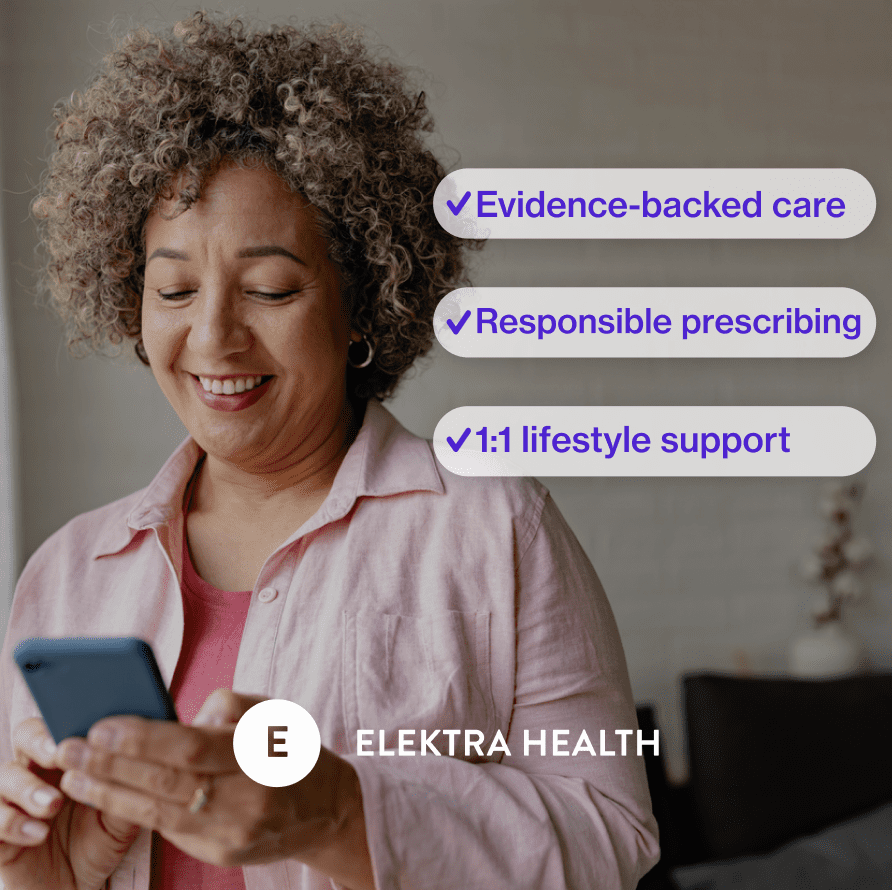
Raise your hand if you feel comfortable talking about brain health?
Bueller? Bueller?
Let’s face it: cognitive health can be a difficult topic to discuss. If the science behind women’s brain health is a mystery to you, it may be because it’s one of the most under-researched, under-diagnosed, and under-treated fields of medicine. So when we heard a groundbreaking new study on menopause and brain health announced, our ears immediately perked up!
The study, published in Scientific Reports, was led by researcher Dr. Lisa Mosconi, Director of the Women’s Brain Initiative and Associate Director of the Alzheimer’s Prevention Clinic at Weill Cornell Medical College (flashback: read top learnings from our 2019 Elektra Salon with Dr. Mosconi here). Using high-tech imagining, Dr. Mosconi and her team observed brain changes in 161 healthy women (aged 40-65) in their pre-, peri-, and post-menopausal phases.
Before we go any further, a note on hormones, brains, and menopause: contrary to what most people think, symptoms like hot flashes, insomnia, and brain fog don’t originate from your ovaries. Rather, they are caused by neurological changes due to shifting hormones.
Your brain runs on glucose, and estrogen is the gas pedal that pushes neurons to turn that glucose into energy. So, when estrogen starts to decline during menopause, neurons in the brain slow down as well, leading to symptoms like brain fog.
Now back to the study!
Dr. Mosconi’s findings revealed two important insights into cognitive changes during the menopause transition.
Important finding #1:
The study found that menopause affects multiple cognitive processes: the structure of the brain (a loss of grey and white matter), the consumption of energy in the brain (glucose), and how different areas of the brain talk to one another (connectivity).
Now for some good news: the findings suggest that some of these changes are temporary. By the time menopause is complete, the brain makes either a close to full recovery to its previous baseline or partially compensates for these changes through increased blood flow and ATP production (the energy “currency” of all cells). You may have heard the term “neuroplasticity” before: the fancy medical term for the brain’s beautiful ability to be resilient and adapt as the result of an experience. In this case, that experience is menopause.
Important finding #2
Another important finding involves Alzheimer’s disease. Through observing the peri- and post-menopausal participants carrying the APOE gene, a key genetic risk factor for Alzheimer’s, Dr. Mosconi’s team found that women in her study accumulated more amyloid plaque buildup than their male counterparts (beta-amyloid protein disrupts cell function in the Alzheimer’s brain). While this may feel discouraging to learn, this knowledge helps us better understand the connection between menopause and a higher Alzheimer’s risk in women. We know that for every man suffering from Alzheimer’s, there are two women. Now that we know that these brain changes begin much earlier in women, specifically during the transition to menopause, we can focus more on early diagnosis and preventive strategies.
So…what can YOU do?
We hope the findings of the study inspire you to tend to and take care of your brains the same way you do the rest of your body! Here are three ways that you can take care of your brain health:
- Establishing a healthy diet: Diet plays a clear and integral role in every aspect of brain function. Rehauling your diet is a daunting task, but if there’s a place to get started we recommend the Mediterranean diet: olive oil, flax seeds, dark green leafy veggies, and berries, have been associated with better cognition, as well as better sleep.
- Treating self care as essential: Stress reduction, minimizing multi-tasking, hydration and exercise are some of the most effective ways to protect your brain health.
- Keep your brain engaged: Challenge yourself to create new neural connections by picking up a crossword puzzle or by learning a new language.
For more information and other helpful ways you can nourish your brains through the menopause transition, be sure to check out our Brain Fog page in Elektra’s 21st Century Guide to Menopause!
WHAT ELSE WE’RE READING
Salma Hayek Convinced ‘Hitman’s Wife’s Bodyguard’ Team to Let Her Play a Menopausal Woman. Yes to more menopause representation on the big screen!
Maria Shriver sits down with 3 women to tackle the menopause stigma (featuring The Woolfer and Dr. Jen Gunter).
No alcohol until menopause? The World Health Organization’s latest advice for “childbearing women” sparks outrage from women calling bullshit.
💸Yet another reason to get moving! A recent study finds that exercising before or during middle age will save you major bucks on annual health care costs.
HEALTHY OBSESSIONS*

FREE core workouts for women 40+
Strength training is a great workout option for women in menopause. Get started with a 12-week core program from Elektra community member, Amanda Thebe.

Cooling weighted blanket – YnM
You deserve to feel cool as hell this summer! So if you are one of the many women blessed with both hot flashes AND insomnia, give this blanket a try.
* We’re not paid to feature these products. We just like them and think you may like them too.
KEEP CALM AND ELEKTRA ON



